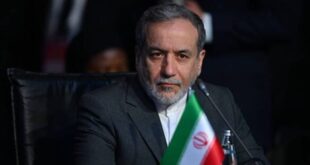 TEHRAN (FNA)- Iran’s oil minister said on Monday he expected OPEC to work on preventing the falling trend in crude prices and also to study oversupply in the market when it meets in September.
TEHRAN (FNA)- Iran’s oil minister said on Monday he expected OPEC to work on preventing the falling trend in crude prices and also to study oversupply in the market when it meets in September.
Iran has previously said the market was oversupplied by about 1 million barrels per day (bpd).
“It seems that OPEC’s member states are intending to prevent the declining trend in oil prices,” Oil Minister Gholam Hossein Nozari said about the September meeting of the Organization of Petroleum Exporting Countries, Shana reported.
“OPEC is examining the oil price trend, the issue of oversupply in the market and price controls,” he said, adding that these topics would be discussed at the meeting.
Oil prices are now trading at around $115 a barrel, finding some support from tensions between the West and Russia over Georgia. Iran’s nuclear row with the West has provided support for oil prices this year.
OPEC ministers are scheduled to meet in Vienna on Sep. 9 to review the organizations output policy. The group is also expected to hold an extraordinary meeting in Algeria in December.
OPEC members say that the market is well-supplied and that factors beyond their control, such as speculation, a weakening US dollar, inadequate refining capacity and geopolitical tensions were behind the drive in crude oil prices in the past few months.
Iranian officials blame sanctions that have been imposed against Tehran as a major contributory factor to the last year rise in prices.
Analysts view US-led sanctions against Iran and geopolitical factors as among the main causes of recent hike in oil prices, saying that fears of a new Middle East conflict are behind the new high for oil prices.
Market analysts, specially those from consumer nations, take Bush administration responsible for the price hikes during the last year, saying that these are frequent sanctions and the “rumors of US and Israeli action against Iran circulating in the markets” that affected oil and the dollar.
Prices dropped by around 20 dollars last month after West softened rhetoric in the dispute with Iran.
 Eurasia Press & News
Eurasia Press & News



